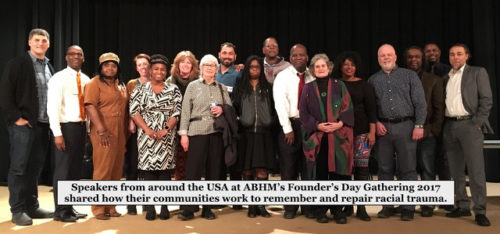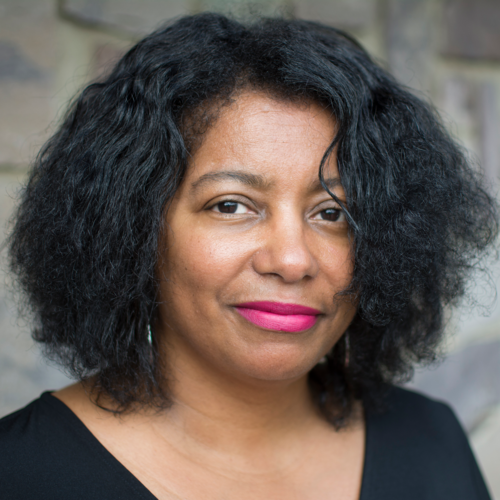“Always in Season” by ABHM Friend Jackie Olive Screens at MKE Film Fest
Share
Explore Our Galleries
Breaking News!
Today's news and culture by Black and other reporters in the Black and mainstream media.
Ways to Support ABHM?
Milwaukee, WI – The 2019 Milwaukee Film Festival will screen Always in Season from director and ABHM colleague, Jacqueline Olive. Back in 2017, ABHM played host to a sneak peak of her film’s “work-in-progress” as part of the year’s Founder’s Day Gathering for Racial Repair and Reconciliation. The premiere and accompanying talks with Jacqueline Olive were the centerpiece of the gathering. Now ABHM is pleased to welcome Jacqueline Olive back to Milwaukee to share the completed version of her debut feature documentary.

A group picture of speakers for the 2017 Founder’s Day Gathering. Dir. Olive is fifth from the right.

Jaqueline Olive. PC. Tellitmedia.org
Always in Season is a powerful exploration of lynchings in America, both past and present, driven by the recent death of a 17 year-old in North Carolina. Unflinching in its honesty and urgency, Always in Season is one of the most provocative, informative, and thoughtful entries into our current dialogue on race in America. The New York Times wrote that “Always in Season makes a powerful case that the history of lynching in the American South is not just history – that murders still haunt the present-day sites where they occurred, and that such killings can and do happen today.” The film will be screened on October 27, 29, and 30, 2019, with the director attending the latter two screenings.
To learn more about the film or purchase a ticket, click here.
Jacqueline Olive is an independent filmmaker and immersive media producer with more than a decade of experience in journalism and film. She has won numerous awards throughout her career including the Special Jury Prize for Moral Urgency from the 2019 Sundance Festival for Always in Season.
For more information on the Milwaukee Film Fest click here.
To learn more about Jacqueline Olive click here.
To read about the 2017 Founder’s Day Gathering click here.
For more Breaking News click here.









Comments Are Welcome
Note: We moderate submissions in order to create a space for meaningful dialogue, a space where museum visitors – adults and youth –– can exchange informed, thoughtful, and relevant comments that add value to our exhibits.
Racial slurs, personal attacks, obscenity, profanity, and SHOUTING do not meet the above standard. Such comments are posted in the exhibit Hateful Speech. Commercial promotions, impersonations, and incoherent comments likewise fail to meet our goals, so will not be posted. Submissions longer than 120 words will be shortened.
See our full Comments Policy here.